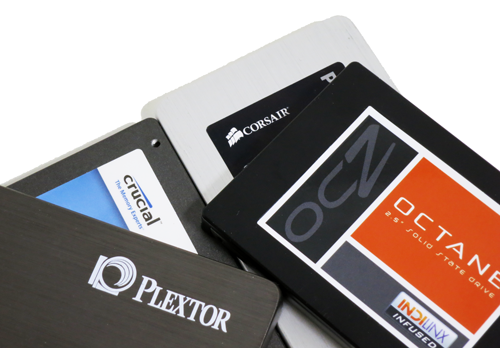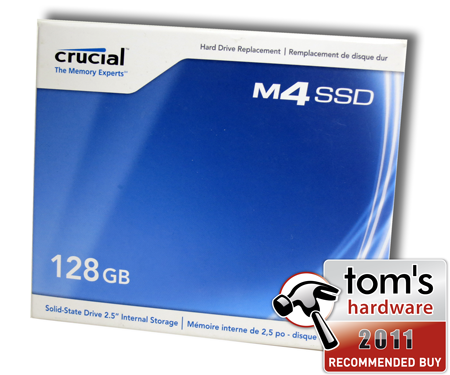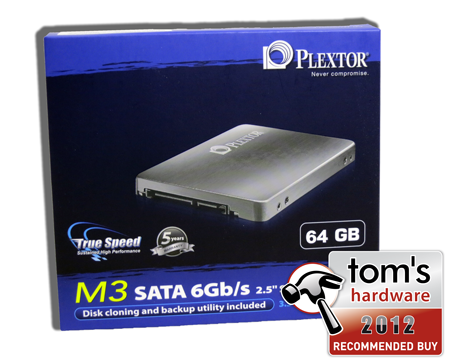Marvell-Based SSDs From Corsair, Crucial, OCZ, And Plextor: Tested
Two Marvell-Based Stand-Outs Emerge
Marvell-based SSDs are less prevalent than the great many SandForce-based drives, but they're nevertheless impressive devices that you should take into consideration when it comes to planning your next build. Although SandForce's technology confers a performance advantage when it comes to working with compressible data, there are a number of workloads that involve incompressible data. In those situations, SSDs based on Marvell controllers, along with Samsung's 830, are great alternatives.
We expected to find considerable similarities amongst these seven SSDs, given their Marvell heritage. We also ran across notable differences, though. The hope, however, was that more access to Marvell's firmware would give these vendors an even greater opportunity to set their products apart. As it turns out, though, like SandForce, the brands selling Marvell-based drives are largely using a couple of NAND standards to create unique performance profiles.
Corsair and Plextor both shine as a result of their reliance on Toggle-mode flash, which conveys the highest possible benchmarks results. Firmware seems to play a less influential role. We do, however, see Plextor creating differentiation between its M3 and M3 Pro drives through an enhanced firmware package. The company claims its improvements are related to garbage collection, though we weren't able to isolate the effect of its optimizations to confirm.
Otherwise, performance similarities between drives are difficult to ignore, particularly when our charts show multiple SSDs generating numbers that almost overlap each other, as is the case with Corsair's Performance Pro and Plextor's M3 Pro. Like chefs creating dishes with almost identical ingredients, each company tries to squeeze the best possible results from their SSDs in an effort to create something other than "yet another second-gen SandForce drive."
| Marvell-based SSD Comparison | NAND Interface | Market Price | Price per GB | Warranty |
|---|---|---|---|---|
| Corsair Performance Pro 128 GB | Toggle-mode | $190 | $1.48 | 3 years |
| Crucial m4 64 GB | Synchronous | $90 | $1.41 | 3 years |
| Crucial m4 128 GB | Synchronous | $125 | $0.97 | 3 years |
| OCZ Octane 128 GB | Synchronous | $170 | $1.33 | 3 years |
| Plextor M3 64 GB | Toggle-mode | $70 | $1.09 | 5 years |
| Plextor M3 128 GB | Toggle-mode | $180 | $1.41 | 5 years |
| Plextor M3 Pro 128 GB | Toggle-mode | $205 | $1.60 | 5 years |
Perhaps the most obvious areas where these companies draw attention to themselves are pricing and support. Massive variation in price per gigabyte between models makes it pretty easy to zero in on favorites, though. The 128 GB Crucial m4, for instance, breaks through the $1/GB barrier for the first time that we can remember. And the 64 GB Plextor M3 delivers Toggle-mode flash in a boot drive very close to the same threshold. Moreover, five-year warranty coverage is something we've only seen from an elite few organizations, and it's a nice addition.
If tracking down fringe performance is more your thing, the 128 GB Performance Pro and M3 Pro are the best choices. The M3 Pro sells for about $15 extra, but again, there's that five-year warranty to consider.
All things considered, we have to recognize two drives today: the 128 GB Crucial m4 and the 64 GB Plextor M3. Both SSDs proffer impressive performance. One employs synchronous NAND and breaks under $1/GB. The other includes faster Toggle-mode memory and still manages to deliver 64 GB for $70.
Get Tom's Hardware's best news and in-depth reviews, straight to your inbox.
Crucial's m4 128 GB already won our 2011 Recommended Buy award for its showing in Crucial's m4 SSD Tested At 64, 128, 256, And 512 GB last year. We're happy to dust that honor off to remind you that this remains one of our favorite choices.
We're also quite happy with the way Plextor's 64 GB M3 performs. We like its generous warranty. And, at $70, it makes a fantastic choice for a boot drive. As a result, the SSD receives our 2012 Tom's Hardware Recommended Buy award.
Current page: Two Marvell-Based Stand-Outs Emerge
Prev Page SSD Management: Problems With Secure Erase-
uruquiora hellfire24crucial FTW!hmm , my M4 has 10x more BSOD than my vertex 3... Each i boot my pc and work with it i prepare myself for a BSOD with my M4...Reply -
joytech22 uruquiorahmm , my M4 has 10x more BSOD than my vertex 3... Each i boot my pc and work with it i prepare myself for a BSOD with my M4...Reply
That is what we in the I.T industry like to call: "Faulty Hardware".
If you considered that normal all this time, I have some bad news for you..
-
chesteracorgi With the price of SSDs coming down, Toms should start introducing 256 GB + drives into its reviews. It's nice to have the 64 & 128 GB reviews, but for power builders the 256 GB is becoming mainstream.Reply -
Cyclops21 Any tests planned on the Sandisk Extreme models. They were a Tom's recommend buy but I still haven't seen any benchmarks on Tom's.Reply -
cknobman I'd still say for most boot and program drives SandForce is the way to go as it has a significant performance edge.Reply -
Onus I've only installed 6-7 SSDs, with mixed results. Two with Sadforce controllers died within months or weeks (the RMA of one is yet to be tested). Given that the slowest SSD beats the pants off the fastest magnetic HDD, I have quickly reached the conclusion that reliability has to be the #1 criterion for SSDs, and I'm not sure Sandforce is there yet.Reply
-
ramon zarat uruquiorahmm , my M4 has 10x more BSOD than my vertex 3... Each i boot my pc and work with it i prepare myself for a BSOD with my M4...Reply
You must be joking... The list of forum thread complaining about SF controller instability is endless. The M4 actually has a very solid reputation. I've been running 2 128GB M4 in 2 different PC for the last 8 months. Not a single BSOD. They still both benchmark the same speed as day 1. Actually, the M4 was and might very well still be the best choice for balance between price, performance and reliability in the whole SSD market. In my book, there are only 3 manufacturers really worth mentioning when it comes to SSD: Crucial, Intel and Samsung.
Your unit is simply defective. That can happen to any manufacturer. RMA it and be happy.


